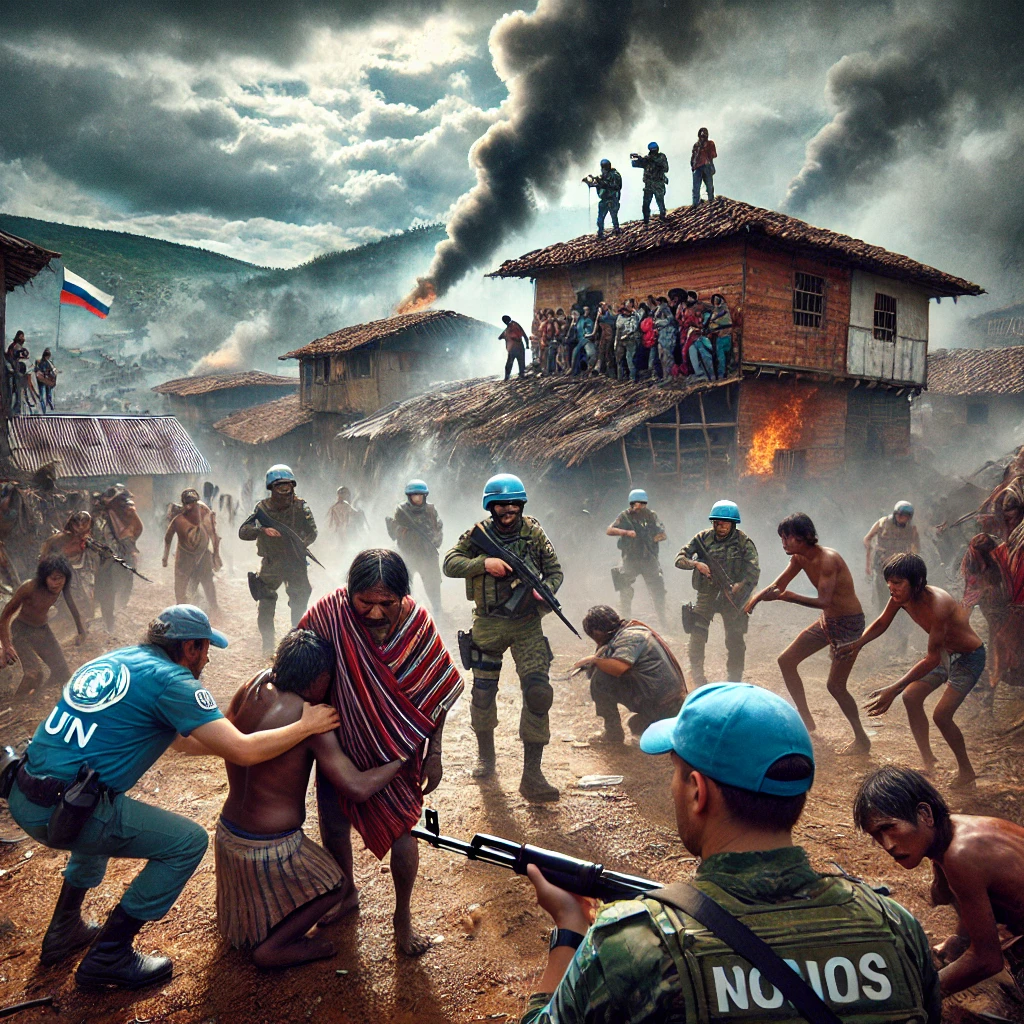Colombia’s Peace Tribunal Delivers First Landmark Convictions for War Crimes
Unlike traditional trials, the SJP’s framework allows defendants to choose between denial of charges or acknowledgment of responsibility.

The United Nations High Commissioner for Human Rights, Volker Türk, hailed the first convictions issued by Colombia’s Special Jurisdiction for Peace (SJP) as a “crucial milestone on the path to accountability,” emphasizing their importance in the country’s long and difficult struggle to overcome impunity and violence.
Historic Step in Transitional Justice
The SJP — known in Spanish as Jurisdicción Especial para la Paz — was established under the 2016 Peace Agreement between the Colombian State and the Revolutionary Armed Forces of Colombia (FARC-EP). It serves as the judicial pillar of the accord, designed to uncover truth, ensure accountability, and deliver justice to victims of decades of armed conflict.
In its first ruling, the tribunal convicted seven senior FARC-EP commanders of war crimes and crimes against humanity. Their convictions stem from a widespread policy of kidnapping that targeted civilians, involving over 20,000 victims. Many of these abductions were accompanied by additional atrocities, including torture, sexual violence, and enforced disappearances.
Alternative Sentencing and Restorative Justice
Unlike traditional trials, the SJP’s framework allows defendants to choose between denial of charges or acknowledgment of responsibility. The convicted leaders opted for the “recognition route,” in which they admitted their crimes. Instead of custodial prison sentences, they will serve restorative sanctions that restrict their movement and compel them to directly contribute to reconciliation efforts.
These penalties include participating in humanitarian demining operations, assisting in the search for Colombia’s tens of thousands of missing persons, and contributing to memorialization projects that preserve the memory of victims. Such measures, rooted in restorative justice, aim not only to punish but also to repair the social fabric torn by conflict.
However, Türk underscored that these activities require adequate funding, logistical organization, and robust security guarantees to succeed. “It is now up to the Government to ensure that the legal, budgetary, security, and administrative conditions are in place for these penalties to be effectively enforced,” he said.
Next Judgements and Broader Implications
The tribunal is expected to issue further landmark rulings soon. One anticipated decision will address the notorious “false positives” scandal, in which state agents murdered civilians and falsely presented them as combat deaths to inflate military success. Such judgments aim to bring accountability not only for crimes committed by insurgents but also by state actors, ensuring a comprehensive reckoning with the past.
The UN Human Rights Office, which supported the SJP’s establishment and has provided technical assistance throughout its investigations, highlighted that victim participation has remained central to the process. Survivors and families of victims have been given space to testify, shaping the narrative of truth and recognition.
Ongoing Challenges for Human Rights
While celebrating this milestone, Türk also issued a stark warning: Colombia’s human rights crisis is far from over. Armed groups continue to operate, human rights defenders face targeted killings, and children are still being recruited by illegal armed factions. Indigenous peoples, Afro-descendant communities, and women are disproportionately affected by these violations, reflecting persistent structural inequalities.
“Implementing peace accords is rarely a smooth or straightforward process; it often requires years of dedicated effort,” the High Commissioner noted. “These convictions highlight the progress made, but also the importance of continuing to prioritize the implementation of the 2016 Peace Accord to prevent further violations and suffering.”
Looking Ahead
Colombia’s transitional justice experiment, closely watched by the international community, is now entering a decisive phase. The credibility of the SJP and the peace process depends not only on legal judgments but also on the government’s capacity to implement sanctions, protect victims and witnesses, and prevent backsliding into violence.
For many victims and their families, these first convictions mark a long-awaited step toward recognition and dignity. For the state and its institutions, they mark the beginning of a long road to ensure truth, justice, and lasting peace.
ALSO READ
UN Commission Finds Israel Committed Genocide in Gaza, Urges Global Accountability
Kerala's Custodial Crisis: Opposition Demands Accountability
Kerala's Custodial Controversy: Opposition Demands Accountability
Colombia's Peace Tribunal Issues Landmark War Crimes Sentence
Historic Judgments: FARC Leaders Sentenced for War Crimes










